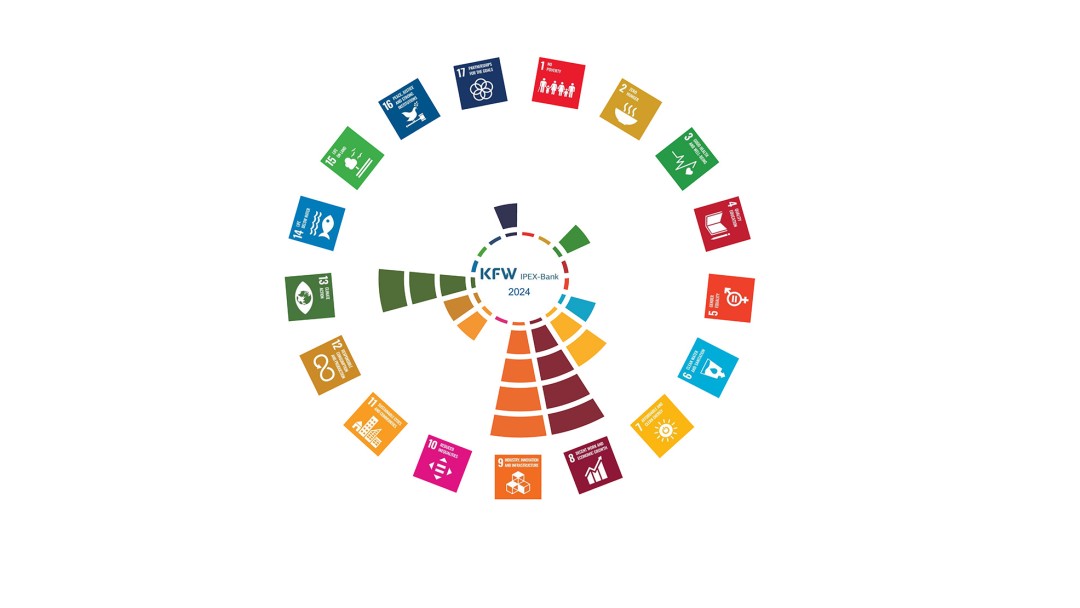Tip: Activate javascript to be able to use all functions of our website
KfW IPEX-Bank works on a global scale to actively support the implementation of the Agenda 2030 adopted in 2015 as well as its 17 Sustainable Development Goals (SDGs).


In order to make the impact of its financings on the SDGs transparent, KfW IPEX-Bank allocates the respective section into which a borrower is classified (customer's 'main activity') - NACE 2008 - to the SDGs.
These NACE codes[1] are part and parcel of a harmonised European system that is intended to provide a comprehensive and full description of companies' economic activities. By applying the NACE code system, KfW IPEX-Bank ensures that the economic activities are structured with as much detail as possible according to a normed system. In addition, the methodology is based on standardised rules to ensure its suitability for future investments. Although there are around 1,000 NACE sub-sections, some sections are not specific enough. For instance, the NACE code 'energy generation' (40100) does not differentiate further between renewable energy and energy generation from fossil fuels. For this reason KfW IPEX-Bank (as has DEG / Deutsche Investitions- und Entwicklungsgesellschaft mbH) has introduced additional, specific codes for wind, solar and thermal energy, for example. These are also used for the mapping in addition to the established NACE codes.
Financings that include guarantees for untied loans signed with borrowers in developing countries are counted towards SDG 17. For Germany, such financings are particularly worthy of support and these guarantees apply only to projects that are economically feasible, that are of particular interest to the Federal Republic of Germany, or that contribute to the economic development of the recipient country.[2]
____________________________________________________________________________________________________
[1] The Statistical Classification of Economic Activities in the European Community (French: Nomenclature statistique des activités économiques dans la Communauté européenne), normally designated simply as NACE, is a system for classifying economic sectors that was developed by the European Union on the basis of the United Nation's ISIC (International Standard Industrial Classification of all Economic Activities). See Common Reporting Standard and DAC markers
[2] https://www.bmwi.de/Redaktion/EN/Dossier/promotion-of-foreign-trade-and-investment.html
Share page
To share the content of this page with your network, click on one of the icons below.
Note on data protection: When you share content, your personal data is transferred to the selected network.
Data protection
Alternatively, you can also copy the short link: https://www.kfw-ipex-bank.de/s/enxBlLh8
Copy link Link copied